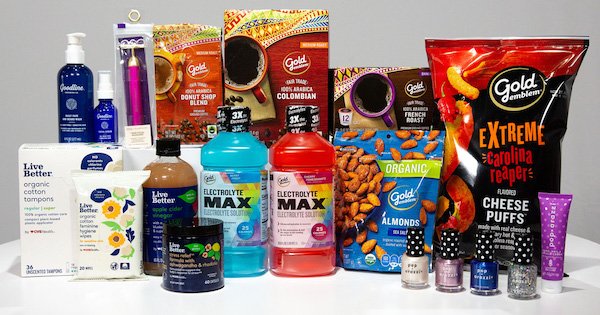- Retailers show strong Q4 2022 market performance despite raising prices of Private Labels higher than National Brands
- Shoppers looking for smart deals on everyday groceries, to moderate the impact of price increases, are turning to Private Labels for better prices and excellent quality and value.
- Transformation in attitudes towards Private Labels supports struggling shoppers
BRACKNELL, UK – EMBARGOED TO 16th May 2023 – Circana, the leading advisor on consumer complexity and formerly IRI and The NPD Group, today launched its latest biannual “FMCG Demand Signals” report for Europe. Covering the six largest markets in Europe (France, Italy, Germany, Spain, UK, and Netherlands), the report reveals that the sector has reached a tipping point with Private Labels outpacing the popularity of National Brands across nearly all categories. Private Labels now make up 38% of total FMCG value sales in Europe (€229 Bn).
Forensically unpacking the impact of the pandemic, inflation and the cost of living crisis on over 230 FMCG categories, 2000+ product segments and over 10 million SKUs; the report reveals strong Private Label growth across all six of the largest markets in Europe, with the highest penetration in Spain (47%) and Germany (41%), and the lowest in the UK (37%), where shoppers continue to buy the National Brands they trust to deliver good value.
Ananda Roy, Global SVP, Strategic Growth Insights, Circana, commented: “Private Labels have come a long way since their arrival on the shelves approximately 40 years ago. Retailer investments are paying off as more consumers perceive Private Labels as being innovative and as good or better than many of the National Brands that they compete with. As a result, they are no longer the ‘cheap’ alternative. Shoppers buy them because they offer something new and of good quality.”
Key findings from the report include:
- Private Label loyalists equal National Brand loyalists – The proportion of consumers who say they are loyal to Private Labels now equals those who say they’re loyal to National Brands. Notably, 60% of all consumers surveyed said Private Labels are as good as National Brands in areas such as innovativeness, quality, delivering on claims, sustainability, and good image. A quarter thought Private Labels were better than National Brands in those areas. Crucially, 21% of undecided consumers who buy both – many of whom are middle-income cohorts – said they now think Private Labels are better than National Brands.
- Shoppers are choosing more Private Labels for edible goods – With the biggest price inflation being almost entirely centred on food categories, the penetration of Private Labels in chilled, fresh, and ambient foods has been particularly high. Among non-food categories, there has been greater penetration of Private Labels in household care, especially staples such as laundry and hygiene items.
- Alcohol and some baby food items have been less vulnerable to Private Label growth – Consumers have stuck to trusted, well-established National Brands for these products. Retailers are trying to counter this by introducing innovative products around new trends, such as zero or no-alcohol beers, or high-quality artisanal products made with locally sourced ingredients that were previously only available from National Brands.
- National Brands still prevail in the alcohol category, but subtle signs of change are beginning to appear – Aldi, for example, partnered with Brewdog to create limited edition offers of the Scottish punk brewer’s IPA range. These partnerships help the discounter create a range of innovative and exclusive craft beers for in-store promotions in the ale isle, providing customers more choice, quality, and value.
- There has been a significant transformation in consumers’ perception of Private Labels – 66% of consumers consider them innovative, making them a huge demand driver. In fact, Private Label Shoppers are seeking a balance of price (78% are actively looking for the lowest prices) and quality (72% pay attention to product labels and 63% check product claims) on every shopping trip.
- National Brands aren’t necessarily losing loyalty, but shoppers are buying less volume – These brands need to keep innovating in order to maintain momentum and stay ahead of competition. For example, shoppers are balancing their desires to purchase with the demands on their purses, making it a business imperative for National Brands to focus their sales strategies on good pricing and healthier plant-based options.
Roy concluded: “Retailers have transformed Private Labels into strategy-led, consumer-focused, well-differentiated and data-driven alternatives to National Brands. National Brands are now having to regard many retailers as significant competition that they can no longer ignore.
“Retailers are clearly winning on many fronts. While not always the least expensive on display in the minds of shoppers, Private Labels offer good value, quality, a range of benefits that meet shopper’s dietary choices or lifestyles and can be trusted as much as National Brands with high equity sitting on adjacent shelves.”
“Shoppers enjoy discovering new products and experiences from Private Labels, telling others about them as it makes them feel better informed, and getting a smart deal that is ultimately a good value without compromises. Retailers have gained more loyalty and share as a result, which could change the shape of grocery retail in the future.”



